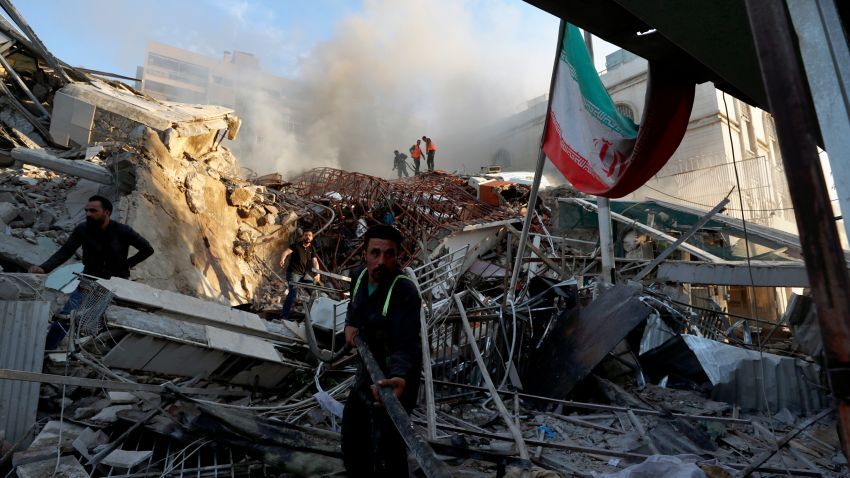On April 1, the Iranian consulate annex building, located next to the Iranian embassy in Damascus, Syria, was bombed. At least sixteen people were reported dead from the attack, including Iranian military leaders and Syrian citizens. Specifically, as reported by Iran’s Foreign Ministry, three of those killed were senior commanders, including Mohammed Reza Zahedi, a top commander in Iran’s elite Revolutionary Guards (IRGC), and senior commander Mohammad Hadi Haji Rahimi.
According to the New York Times, four unnamed Israeli officials acknowledged that Israel carried out the attack; however, they also claimed that the targeted building did not have diplomatic status and that it was an Outpost of the Revolutionary Guard, which would make it a military target. Officials from the embassy oppose this and claim that the building was a consular section and also included the ambassador’s residence.
Overall, this attack has led to an escalation in tension between the two conflicting nations. The possibility of retaliation by Iran has been presented as Iran’s foreign ministry spokesman, Nasser Kanaani, states that “Iran preserves the right to take reciprocal measures and will decide the type of response and punishment against the aggressor.”
Analysts predict that the likely result of this attack could be an increase in attacks by proxies of Iran, including Hezbollah, a Lebanese Shia Islamist political party and militant group backed by Iran. In a statement by Hezbollah in Iran’s State media, they stated that “without doubt, this crime will not go without punishment and revenge against the enemy.” It is also predicted that attacks will be launched against U.S. troops as well, as Iran holds the U.S. responsible due to its support of Israel. United States officials claim that they were not involved with the strike and had no prior knowledge of it.
